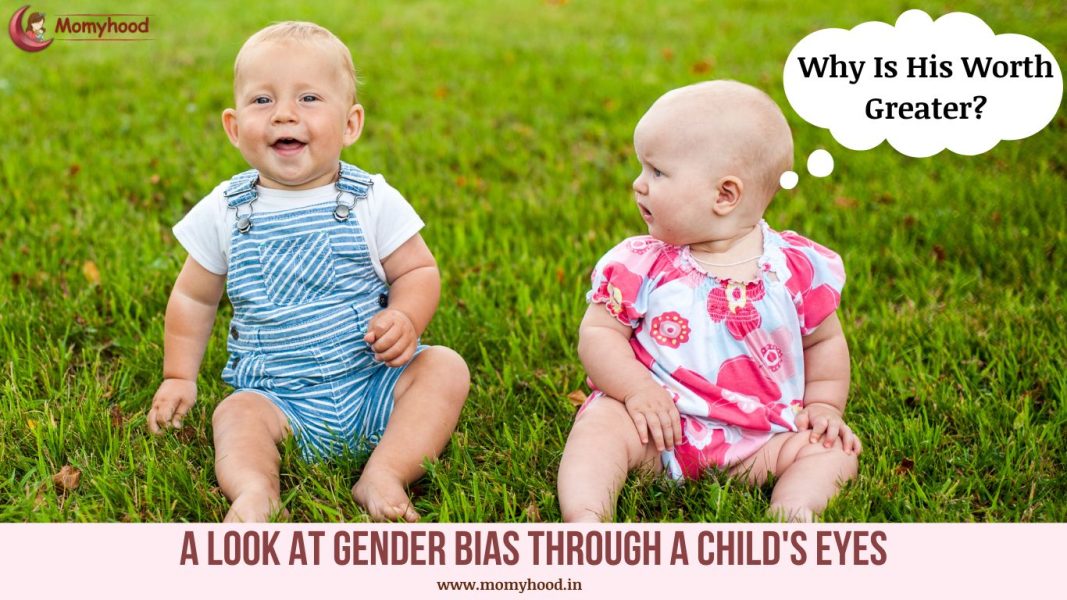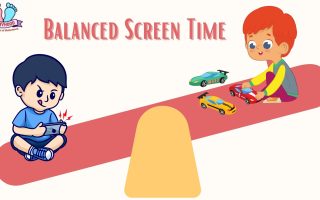Becoming a mother is one of the most profound experiences a woman can have, filled with anticipation, hope, and love for the child she is bringing into the world. But sadly, this joy is often overshadowed by societal expectations and biases, especially when it comes to the preference for having a son over a daughter.
This is something that I have observed and experienced firsthand, not just as a societal norm but in personal interactions, particularly during pregnancy. The following reflections aim to shed light on these harmful attitudes, encourage introspection, and advocate for a much-needed change in our perspectives towards gender equality.
Contents
A Blessing or a Curse?
In many parts of our society, the announcement of a newborn boy is celebrated, while the birth of a girl is met with lukewarm reactions, if not outright disappointment. I have personally witnessed this disparity when a transgender individual blessed a couple by saying, “Beta hoga aapko” (You’ll have a son). The couple beamed with happiness. However, when the blessing was, “Pyari si beti ho” (You’ll have a lovely daughter), the reaction was shock and disbelief, as if something terrible had been said. This bias reflects deeply ingrained stereotypes and prejudices that value sons over daughters.
The Hurtful Words During My Pregnancy
During my own pregnancy, I heard the phrase “Koi achhi cheez ho jaye” (May something good happen) more times than I could count. What they meant by “something good” was a boy. It was a shocking revelation to hear such blatant disregard for girls, especially coming from women themselves. Hearing this over and over again was disheartening and painful.
As a woman myself, I struggled to comprehend how other women could utter such words without realizing the impact they had. During those nine months, I heard this phrase at least 50 times. Each time, it chipped away at my excitement and replaced it with anxiety. I found myself secretly hoping for a son, not because that’s what I wanted, but because I feared the disappointment and judgment that would come if I had a daughter.
The irony wasn’t lost on me. Here I was, a daughter myself, listening to my sister-in-law & mother-in-law, express their preference for a male child. How could they say such things, knowing full well the implications of their words? How could they perpetuate such toxic beliefs? Do they realize the impact of their words on a pregnant woman?
People often say pregnant women shouldn’t be stressed, yet these very comments were a constant source of tension. These comments, often dismissed as harmless, can cause significant stress and anxiety to expectant mothers. The pressure to deliver a boy was overwhelming, and I often wondered how other expectant mothers coped with this burden.
The Pressure of Family Expectations
When a woman gives birth to a girl, people console her by saying, “Koi baat nahi, dusra ladka ho jayega” (No worries, the next one will be a boy). It’s as if having a girl is a mistake to be corrected. This assumption that every couple plans to have multiple children is presumptuous and adds unnecessary pressure. It’s not necessary that every couple wants or plans to have a second child.
The gender bias doesn’t stop with the firstborn. If a couple has a boy first, there’s a sigh of relief, followed by comments like, “Chalo achcha hua, pahla ladka ho gaya” (Good, the first one is a boy). This statement carries the assumption that having a son first somehow completes the family. But why?
This is not it! I’ve seen relatives literally weep when a second child turns out to be a girl, even after the couple already has a son. This reaction is not only hurtful but also illogical. It perpetuates the idea that families need sons and that daughters are somehow less valuable, regardless of birth order.
This mindset places immense pressure on women to bear sons, disregarding their own desires and health. Why should a mother feel pressured to have more children just to fulfill societal expectations of having a boy?
In many families, the birth of a boy is seen as an achievement, a validation of a woman’s worth. The idea that a woman’s primary role is to bear a son is not only outdated but damaging. This pressure can lead to strained relationships, where husbands may distance themselves from their wives for not having sons, as I’ve observed in some families.
One heartbreaking example, I know of a family where, after having two daughters, the couple tried for a third child hoping for a boy. When they had another girl, the husband stopped talking to his wife. This kind of behavior is not only unjust but also ignorant. And believe me, this is not an isolated incident but a reflection of a broader societal problem that needs urgent addressing.
Even more distressing is how this mindset seeps into our family lives. I’ve seen mothers-in-law express disappointment when a girl is born, saying things like, “Bhagwan ne galti kardi, yeh toh ladka hona chahiye tha” (God made a mistake, this should have been a boy). These words cut deep into the heart of a new mother, already vulnerable and overwhelmed.
The Ignorance of Biological Facts
It’s astounding how many people remain ignorant of the biological fact that the father’s chromosomes determine the baby’s sex. This ignorance often leads to mothers being unjustly blamed and shamed for giving birth to girls. It’s crucial to spread awareness about this and educate people, especially in families where such biases are deeply rooted.
Please read the article here that says society needs to know that man’s chromosomes decide child’s gender.
The Need for Change
The preference for boys over girls is a deeply rooted issue that requires a shift in mindset. This mindset needs to change. We need to challenge these stereotypes and encourage a culture of equality and respect for all children, regardless of their gender. This change begins with education and awareness, highlighting the equal value of daughters and sons.
It is crucial for families to understand the harm caused by gender bias and to actively work towards creating an environment where all children are celebrated and cherished equally. I dream of a world where women don’t feel pressured to have sons, where every birth is celebrated, and where families rejoice in the arrival of a child, whether it’s a boy or a girl. We must move beyond the outdated notions of gender roles and embrace a future where both boys and girls are seen as blessings.
Conclusion
My journey as a mother has taught me that change begins with us. As mothers, sisters, daughters, and individuals, we have the power to change these narratives. By speaking out against gender bias and promoting gender equality, we can create a more just and equitable world for our children. It’s time to celebrate every child, regardless of gender, and to ensure that future generations are free from the shackles of outdated prejudices.
To all the expectant mothers out there, I say this: Your child, whether a boy or a girl, is a blessing. Don’t let anyone’s words or expectations dim the joy of bringing a new life into this world. And to everyone else, I implore you to think before you speak. Your words have power – use them to uplift and support, not to perpetuate harmful stereotypes.
Let’s work together to build a society where we celebrate vaginas as much as we celebrate penises, where the birth of a daughter is met with as much joy as the birth of a son. Only then can we truly say we’ve progressed as a society.
Your comments and shares do more than just support our blog—they uplift the amazing moms who share their stories here. Please scroll down to the end of the page to leave your thoughts, and use the buttons just below this line to share. Your support makes a big difference!



